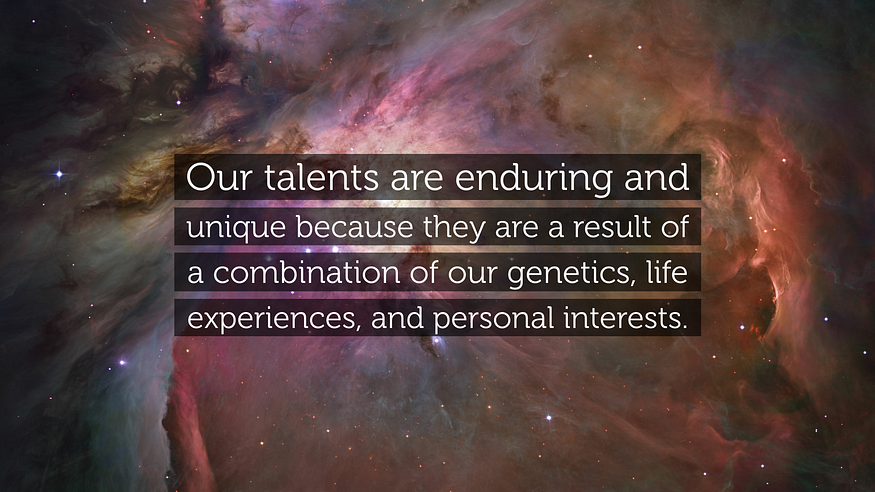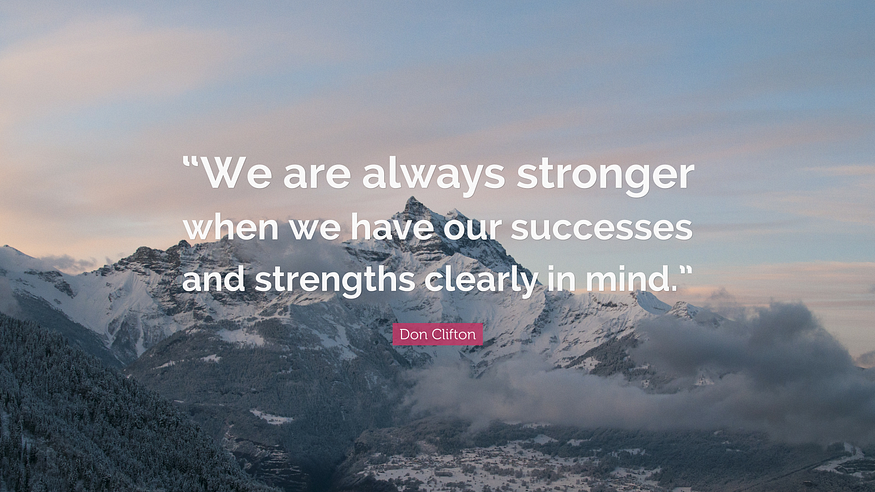From a young age, we’re told to improve our weaknesses—study harder, train more, and focus on what we’re bad at. But this approach often leads to frustration, low confidence, and wasted effort. Instead, the key to success lies in maximizing our strengths.
The Power of Strengths: Backed by Research
A Gallup study of over 10 million people found that those who focus on their strengths are:
- 6x more likely to be engaged at work.
- 3x more likely to report excellent life satisfaction.
Gallup defines strength as “consistent, near-perfect performance in an activity.”

3 Key Principles of Strength-Based Success
- Consistency Matters – A true strength is something you can perform repeatedly, happily, and successfully.
- Excellence Doesn’t Require Well-Roundedness – Great performers sharpen a few key strengths rather than trying to excel at everything.
- Managing Weaknesses is Smarter Than Fixing Them – Instead of wasting time on weaknesses, top performers find ways to work around them.
What Creates Strengths?
Strengths emerge from a combination of talents, knowledge, and skills:
- Talents – Natural patterns of thought, feeling, or behavior (e.g., curiosity, competitiveness, persistence).
- Knowledge – Both factual (learned content) and experiential (gained through life experiences).
- Skills – Learned steps of an activity, which become valuable when paired with talent.
How to Identify Your Strengths
To uncover your strengths, look for these three clues:
- Yearnings – What are you naturally drawn to?
- Rapid Learning – What skills do you pick up effortlessly?
- Satisfaction – What activities make you lose track of time and feel energized?
Obstacles to Building Strengths
Common barriers include:
- Lack of self-awareness – Not knowing what you’re naturally good at.
- Lack of focus – Spreading yourself too thin.
- Fear of failure – Avoiding new challenges due to self-doubt.
- Negative self-talk – Letting limiting beliefs hold you back.
- Lack of support – Not having mentors or peers to encourage growth.

Managing Around Weaknesses
Rather than fixing every weakness, try these strategies:
- Get a little better at essential skills (e.g., communication, organization).
- Design a support system – Leverage tools, mentors, or automation.
- Use strengths to compensate – Lean on what you excel at to offset weaknesses.
- Find a partner – Collaborate with people whose strengths complement your weaknesses.
- Stop doing it – If a task isn’t necessary, eliminate or delegate it.
- Practice self-compassion – Accept that no one excels at everything.
Everyone is Good at Something
Think of areas where you naturally shine—whether it’s communication, problem-solving, creativity, or leadership. The goal is to double down on what you’re already good at rather than struggle to be average at things you dislike.
Steps to Develop Your Strengths
- Identify activities you naturally enjoy and do more of them.
- Invest in mastering skills that come easily to you.
- Refine the processes where you intuitively know what to do.
- Focus on activities that make you lose track of time.
- Prioritize what energizes you rather than drains you.
The Bottom Line
Becoming exceptional at one thing is more valuable than struggling to improve weaknesses. Make a list of your strengths and find ways to refine and leverage them. The more you focus on what you do best, the greater your confidence, performance, and overall success.

